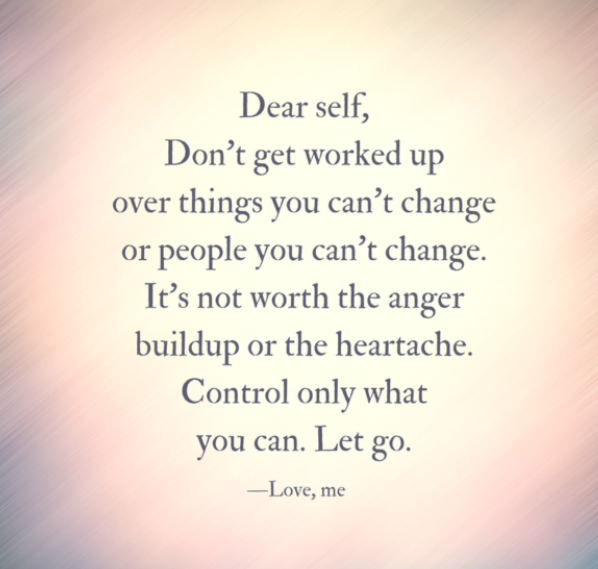Prepping for Disaster: 6 Strategies to Regain Control
Prepping for Disaster: You can't control everything, but you can reduce stress by planning for what is under your control. Unless you are a seasoned doomsday prepper, the current
pandemic affecting our society may have caught you be surprise. Although this
crisis is certainly a tragedy and should be treated as such, this situation can
serve as a wake up call that you need to plan for similar incidents in the
future. I never made it past brownies, but even I know it's important to plan for life's ups and downs:)
|
Unfortunately, we have seen a large number of the population react to this situation in a way that is excessive and even harmful to other individuals. Purchasing certain items in excess and flooding the supermarkets has become normality as of late. Because of this trend, many individuals who may need these resources far more than most or who have trouble accessing the places to acquire these things are suffering the consequences. |
I'm going to discuss some sensible strategies that are extremely beneficial regarding the current situation as well as ensuring a future crisis doesn’t leave you in the dark (no pun intended).
Prepping for Disaster:
Quality over quantity when shopping
While there are some items that are essential to buy in bulk, such as toilet paper and basic medication, others can be purchased in moderation and still leave you prepared. No matter what's going on, it's always important to nourish your body with healthy foods.
When stocking up on food items for an emergency, focus on buying items that have a long shelf life and provide a large number of calories - healthy calories. In regard to water, it is certainly wise to have a stockpile of bottled water or gallon containers.
However, you may want to look into some form of water filtration system. These devices are readily available and essentially provide an endless supply of drinkable water should your stash run low.
Prepping for Disaster:
Maintain an emergency fund
This tip applies to everyday life; you should always have some sort of nest egg available for unplanned expenses, such as a medical emergency or vehicle trouble. In this case of a pandemic, having an emergency fund becomes even more crucial.
Consider the millions of individuals currently out of work and not receiving a steady flow of income. Having currency allocated to a situation such as the current crisis is absolutely essential. I know this is easier said than done!
This is what I'm doing to disaster-proof my income>>>
Prepping for Disaster:
Make a plan
Establishing a well-organized plan for you and your family is not something that should be done in the middle of an emergency. Although it can seem quite excessive in the flow of everyday normal life, it is important that you plan and discuss with your family exactly how you will act should this type of situation occur. Be sure to cover the basics such as where you will go, what resources you have available to use and what each person’s role will be.
Prepping for Disaster:
Avoid panic
|
It's a known fact that human beings don't think clearly or react appropriately in a panicked state. We see examples of this behavior in every crisis situation. When disaster strikes, being prepared is the best way to avoid panic. If you and your family have already discussed a well-established plan to deal with the situation, you can eliminate rash decisions that can very likely cause further harm. The best way to avoid panic is by training your brain to be more responsive to stress, rather than reactive. By practicing turning your relaxation response on regularly, your brain learns to do this faster and more easily. So, how do you do this? |
1. Take some slow, deep breaths. The exhale should be longer than the inhale to turn on your parasympathetic nervous system - the "chill out" system.
2. Practice regular meditation - this also calm down the fight or flight response.
3. Practice hypnosis. This is like meditation but with an added suggestion to help your thinking change for your benefit.
Prepping for Disaster:
Basic Emergency Skills
An important thing to consider when preparing for a crisis is how to minimize the damage. A gas leak or electrical issue in your household can quickly become life threatening during a natural disaster.
Make sure you are aware of how to shut off certain appliances and valves around the house. Furthermore, having the ability to help someone in danger using basic CPR skills can be invaluable in an emergency situation. Once again, these things are easy to disregard in everyday life, but can become critically important very quickly.
Prepping for Disaster:
Maintain communication
Most of us take for granted the ability to maintain communication with our friends and family. We just assume that our smart phones, computers and televisions will always be there when we need them. However, these things can quickly become unavailable during emergency situations where electricity and wireless connectivity are eliminated.
It's important to have plan for maintaining the use of these devices in a crisis situations. Consider investing in things like solar-powered chargers, a generator and rechargeable batteries to ensure you are able to communicate.
|
Are you prepping for disaster? Do you walk down the street with your mind already in your next meeting or worrying about how the last appointment went? So many people spend their lives in their heads, not aware of the world around them or how they are moving through it. All it takes is a small but significant mental gear shift for us to engineer true happiness. Need a little extra help with self-improvement? Browse my self-help shop for the best of the best tools for rapid change. |


